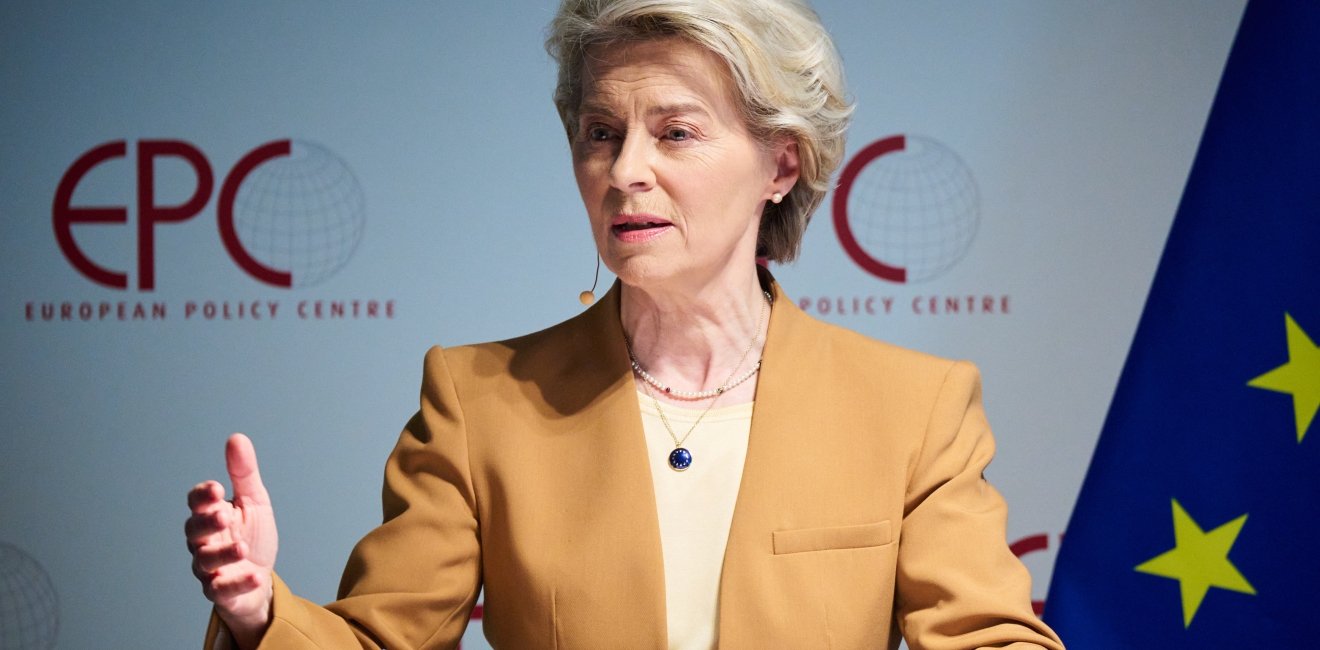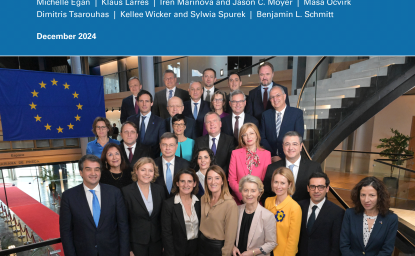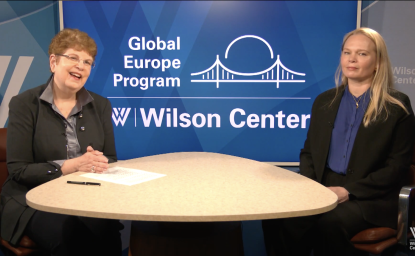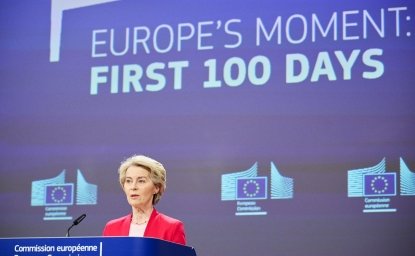Commissioners overseeing the portfolio, or parts thereof
- Maroš Šefčovič, Commissioner for Trade and Economic Security, Interinstitutional Relations and Transparency
- Valdis Dombrovskis, Commissioner for Economy and Productivity, Implementation and Simplification,
- Stéphane Séjourné, Executive Vice-President for Prosperity and Industrial Strategy
- Kaja Kallas, High Representative of the European Union for Foreign Affairs and Security Policy and Vice-President of the European Commission
- Andrius Kubilius, Commissioner for Defence and Space
For the last five years the European Commission led by President Ursula von der Leyen has taken it upon itself to design a united China policy for the European Union. This, however, has proven to be quite contentious among EU members and a truly comprehensive ‘EU China Strategy’ has yet to emerge. In her second term von der Leyen, therefore, remains determined to develop a firmer and more assertive EU policy toward China, though all 27 EU member states will have to agree on such a course of action.
China’s Assault on the Global Order and the EU’s Response
While the United States had woken up to the increasing economic and strategic competition from China much earlier than Europe, by March 2019 the EU also began to view Beijing’s assertive economic and trade policies with greater skepticism. Already the Commission led by Jean-Claude Juncker published a strategy paper describing China as the EU’s “partner, competitor, and systemic rival.” This marked a departure from the EU’s previous approach focused on engagement and cooperation with China in almost all economic and technological areas.
Throughout 2019-2020 the EU remained divided on its approach to China, with countries like Hungary, Italy, and Germany favoring continued economic engagement. The expectation that China would deliver on promises of reciprocal market access and adherence to WTO rules faded gradually. In fact, the Comprehensive Agreement on Investment (CAI) concluded in December 2020 was the highpoint of intensive economic engagement. Its rejection by the European Parliament only a couple of months later already indicated a new, much tougher EU policy toward China. This was further reinforced by China’s lack of transparency and cooperation during the COVID-19 pandemic.
During Ursula von der Leyen’s first term as Commission President, the EU faced intensified competition with China. She had to tackle Beijing’s domestic industrial subsidies, export overcapacities, and efforts to dominate high-tech industries like solar panels and electric vehicles (EVs). The EU also confronted China’s economic support for Russia’s war in Ukraine, increasing influence in the global south, and efforts to drive a wedge between the EU and the United States. At the same time, Beijing also exploited the EU’s difficulties and absence of appropriate legislation to successfully counter China’s assertive economic and political actions.
The EU’s Toolkit to Manage China
In response, the Commission developed a robust toolkit to defend the EU against China’s policies. Von der Leyen’s speech on EU-China relations on March 30, 2023 and the publication of the European Economic Security Strategy of June 2024, highlighted the Commission’s new resolve to ‘de-risk’ from China. This comprehensive toolkit equips the EU with instruments to protect the Single Market and counter political coercion against EU members. The second von der Leyen Commission is able to rely on this comprehensive toolkit consisting of seven complex legislative measures:
Core Priorities
During her second term, Commission President von der Leyen has set three key priorities: 1) to modernize the EU economy, including advancing the European Green Deal, and increase the EU’s competitiveness along the lines of the reports by Mario Draghi and Enrico Letta; 2) to increase defense budgets across EU member states; and 3) to pursue an even firmer “de-risking” approach toward China. Here, her primary aim is to ensure a level playing field with Beijing while aligning the EU's China policy more closely with that of the United States. She also intends to revamp the US-EU Trade and Technology Council (TTC), in which transatlantic policy toward China is often discussed and shaped.
To achieve these ambitious goals, von der Leyen has successfully consolidated her own political position within the Commission. While overlapping portfolios among Commissioners may lead to some confusion regarding competencies and policy direction, the approach to China stands out as clear and focused. In particular, there are five Commissioners who will have major responsibility for shaping the EU’s China policy. In their European Parliament confirmation hearings, they all indicated high skepticism towards China’s economic and trade policies and a clear and close alignment with the US position on China.
Maroš Šefčovič, Commissioner for Trade and Economic Security, Interinstitutional Relations and Transparency announced plans to “rebalance” EU-China relations and take on Beijing’s “unfair trade practices” as well as revamp the US-EU Trade and Technology Council (TTC) to coordinate transatlantic policies toward China. Valdis Dombrovskis, Commissioner for Economy and Productivity, Implementation and Simplification, has been a key figure in EU’s imposition of tariffs on Chinese EVs and has vowed to continue with such an approach. Executive Vice-President for Prosperity and Industrial Strategy Stéphane Séjourné’s primary focus will be enhancing EU’s strategic autonomy. In his confirmation hearing he expressed strong support for EU’s tariffs on Chinese EVs and the need to tackle China’s export overcapacity that is threatening EU’s competitiveness. Kaja Kallas, High Representative of the European Union for Foreign Affairs and Security Policy, emphasized the need to counter China’s support of Russia’s war in Ukraine and its increasing influence in the global south. She plans to increase the EU’s role in the Indo-Pacific and intensify the EU’s relations with India and the African continent. Andrius Kubilius, Commissioner for Defence and Space, has expressed concerns about China increasing its defense budget and becoming “more militarized and aggressive.”
Transatlantic Cooperation & Engagement
The new Commission will pursue a much more assertive, no-nonsense approach toward China. This may well lead to a deterioration of EU-China relations, though both sides remain dependent on each other for trade and technology. China, after all, the EU's third-largest partner for exports and the biggest for imports. However, the overall economic situation in China and in most European countries is not very promising at present.
Thus neither side can afford truly bad economic relations or even a trade war with each other. Moreover, after ever deteriorating relations with the United States, China can hardly afford to antagonize the EU too much. The global south and Russia cannot replace the important, if not crucial role Europe has for China’s economy and technological development. At the same time, it is also difficult for Europe to truly ‘de-risk’ and diversify its trade and investment away from China. An increasingly protectionist policy pursued by US policymakers will make this even more difficult. It remains to be seen how the new Commission will deal with China and manage these huge global challenges.
Both the new von der Leyen Commission in Brussels and the new Trump administration in Washington, have their work cut out in dealing with the serious challenges from China over the next few years. The EU and the United States should therefore settle any potential transatlantic trade conflicts as quickly as possible to avoid a trade war. Any such intra-western disputes would only benefit China. Instead, the transatlantic partners on both sides of the Atlantic ought to use the existing cooperation and dialogue forums, such as the TTC, but also NATO and G7 meetings, to develop a joint, coordinated and robust transatlantic China strategy.








